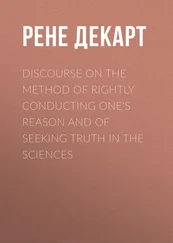one would hesitate to say that this difference is in the degree of
intelligence. In whatever way we turn the subject we shall always find that
what we call the "livingness" of any individual life is ultimately measured
by its intelligence. It is the possession of greater intelligence that
places the animal higher in the scale of being than the plant, the man
higher than the animal, the intellectual man higher than the savage. The
increased intelligence calls into activity modes of motion of a higher
order corresponding to itself. The higher the intelligence, the more
completely the mode of motion is under its control: and as we descend in
the scale of intelligence, the descent is marked by a corresponding
increase in _automatic_ motion not subject to the control of a
self-conscious intelligence. This descent is gradual from the expanded
self-recognition of the highest human personality to that lowest order of
visible forms which we speak of as "things," and from which
self-recognition is entirely absent.
We see, then, that the livingness of Life consists in intelligence--in
other words, in the power of Thought; and we may therefore say that the
distinctive quality of spirit is Thought, and, as the opposite to this, we
may say that the distinctive quality of matter is Form. We cannot conceive
of matter without form. Some form there must be, even though invisible to
the physical eye; for matter, to be matter at all, must occupy space, and
to occupy any particular space necessarily implies a corresponding form.
For these reasons we may lay it down as a fundamental proposition that the
distinctive quality of spirit is Thought and the distinctive quality of
matter is Form. This is a radical distinction from which important
consequences follow, and should, therefore, be carefully noted by the
student.
Form implies extension in space and also limitation within certain
boundaries. Thought implies neither. When, therefore, we think of Life as
existing in any particular _form_ we associate it with the idea of
extension in space, so that an elephant may be said to consist of a vastly
larger amount of living substance than a mouse. But if we think of Life as
the fact of livingness we do not associate it with any idea of extension,
and we at once realize that the mouse is quite as much alive as the
elephant, notwithstanding the difference in size. The important point of
this distinction is that if we can conceive of anything as entirely devoid
of the element of extension in space, it must be present in its entire
totality anywhere and everywhere--that is to say, at every point of space
simultaneously. The scientific definition of time is that it is the period
occupied by a body in passing from one given point in space to another,
and, therefore, according to this definition, when there is no space there
can be no time; and hence that conception of spirit which realizes it as
devoid of the element of space must realize it as being devoid of the
element of time also; and we therefore find that the conception of spirit
as pure Thought, and not as concrete Form, is the conception of it as
subsisting perfectly independently of the elements of time and space. From
this it follows that if the idea of anything is conceived as existing on
this level it can only represent that thing as being actually present here
and now. In this view of things nothing can be remote from us either in
time or space: either the idea is entirely dissipated or it exists as an
actual present entity, and not as something that _shall_ be in the future,
for where there is no sequence in time there can be no future. Similarly
where there is no space there can be no conception of anything as being at
a distance from us. When the elements of time and space are eliminated all
our ideas of things must necessarily be as subsisting in a universal here
and an everlasting now. This is, no doubt, a highly abstract conception,
but I would ask the student to endeavour to grasp it thoroughly, since it
is of vital importance in the practical application of Mental Science, as
will appear further on.
The opposite conception is that of things expressing themselves through
conditions of time and space and thus establishing a variety of _relations_
to other things, as of bulk, distance, and direction, or of sequence in
time. These two conceptions are respectively the conception of the abstract
and the concrete, of the unconditioned and the conditioned, of the absolute
and the relative. They are not opposed to each other in the sense of
incompatibility, but are each the complement of the other, and the only
reality is in the combination of the two. The error of the extreme idealist
is in endeavouring to realize the absolute without the relative, and the
error of the extreme materialist is in endeavouring to realize the relative
without the absolute. On the one side the mistake is in trying to realize
an inside without an outside, and on the other in trying to realize an
outside without an inside; both are necessary to the formation of a
substantial entity.
THE HIGHER MODE OF INTELLIGENCE CONTROLS THE LOWER.
We have seen that the descent from personality, as we know it in ourselves,
to matter, as we know it under what we call inanimate forms, is a gradual
descent in the scale of intelligence from that mode of being which is able
to realize its own will-power as a capacity for originating new trains of
causation to that mode of being which is incapable of recognizing itself at
all. The higher the grade of life, the higher the intelligence; from which
it follows that the supreme principle of Life must also be the ultimate
principle of intelligence. This is clearly demonstrated by the grand
natural order of the universe. In the light of modern science the principle
of evolution is familiar to us all, and the accurate adjustment existing
between all parts of the cosmic scheme is too self-evident to need
insisting upon. Every advance in science consists in discovering new
subtleties of connection in this magnificent universal order, which already
exists and only needs our recognition to bring it into practical use. If,
then, the highest work of the greatest minds consists in nothing else than
the recognition of an already existing order, there is no getting away from
the conclusion that a paramount intelligence must be inherent in the
Life-Principle, which manifests itself _as_ this order; and thus we see
that there must be a great cosmic intelligence underlying the totality of
things.
The physical history of our planet shows us first an incandescent nebula
dispersed over vast infinitudes of space; later this condenses into a
central sun surrounded by a family of glowing planets hardly yet
consolidated from the plastic primordial matter; then succeed untold
millenniums of slow geological formation; an earth peopled by the lowest
forms of life, whether vegetable or animal; from which crude beginnings a
majestic, unceasing, unhurried, forward movement brings things stage by
stage to the condition in which we know them now. Looking at this steady
progression it is clear that, however we may conceive the nature of the
evolutionary principle, it unerringly provides for the continual advance of
the race. But it does this by creating such numbers of each kind that,
after allowing a wide margin for all possible accidents to individuals, the
Читать дальше









![John Bruce - The Lettsomian Lectures on Diseases and Disorders of the Heart and Arteries in Middle and Advanced Life [1900-1901]](/books/749387/john-bruce-the-lettsomian-lectures-on-diseases-and-disorders-of-the-heart-and-arteries-in-middle-and-advanced-life-1900-1901-thumb.webp)

